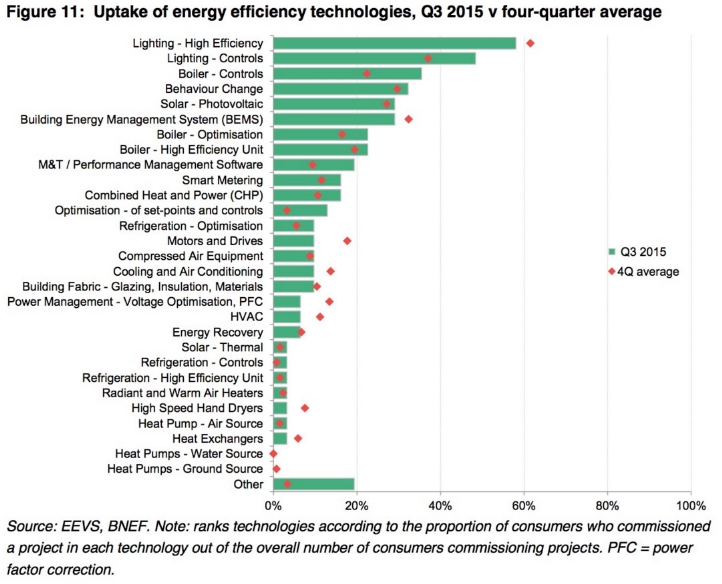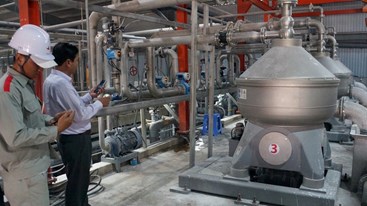Wednesday, 04/03/2026 | 01:33 GMT+7
UK businesses are implementing energy efficiency schemes at the highest rate ever, according to a new report from Bloomberg New Energy Finance (BNEF) and energy analyst firm EEVS.
The latest edition of BNEF's UK Energy Efficiency Trends report found that more than 80% of respondents authorised new efficiency programmes in Q3 of 2015, marking the highest percentage of new projects recorded in a quarter since the survey began in 2012.
It also found a significant uptick in commissioning, exceeding the long term trend of around 70%. The research surveyed 67 UK-based energy and other senior managers.
Efficient lighting was the most popular installation choice, with use of lighting controls seeing significant growth. This chimes with edie’s own 2015 survey of energy managers, which found that 76% of respondents were prioritising energy-efficient lighting systems this year.
Boiler controls also experienced growth in popularity, according to the BNEF study - perhaps due to seasonal influences, as did projects that included efficiency measures to a building’s fabric. There was a fall in the number of measures specified for heating, ventilating and air conditioning system.
Despite the relative popularity od efficiency measures, around one third of ESOS eligble business were still not compliant with the scheme as of last week, accrodign to an edie Freedom of Information request.

Change we can believe in
The report also claimed to show, for the first time, that behaviour change is now frequently delivering ‘metered’ energy savings.
The report found that behaviour change projects were achieving savings ‘often up to 5%’, with some projects delivering savings in the range of 10% to 20%. (Read edie's five top tips for a successful behaviour change programme).
“The most important insight is that the success of many of the projects has been measured using energy meters,” said Chris Large, a senior partner at environmental charity Global Action Plan, which sponsored the report.
“The survey indicates more than 50% of engagement programmes have achieved metered energy savings. Seeing an energy meter recording lower consumption is the crucial evidence required for energy managers and estates directors to invest effort and budget in behaviour change programmes,” Large added.
According to the report, 65% of energy managers are pushing employee engagement initiatives, while 60% will be focusing on building/energy management systems.
Edie.net







